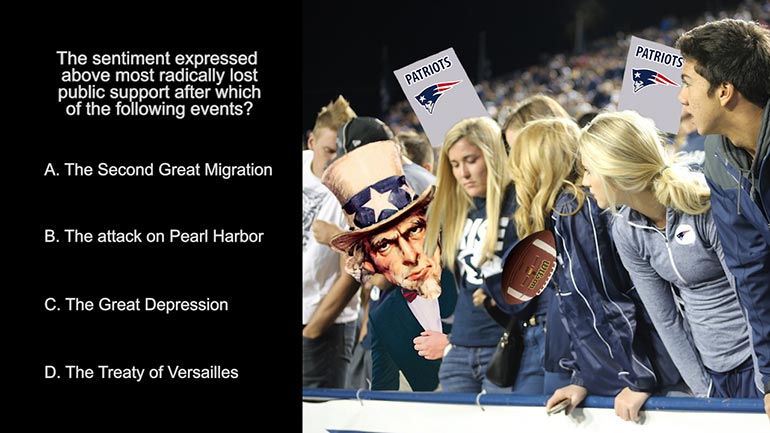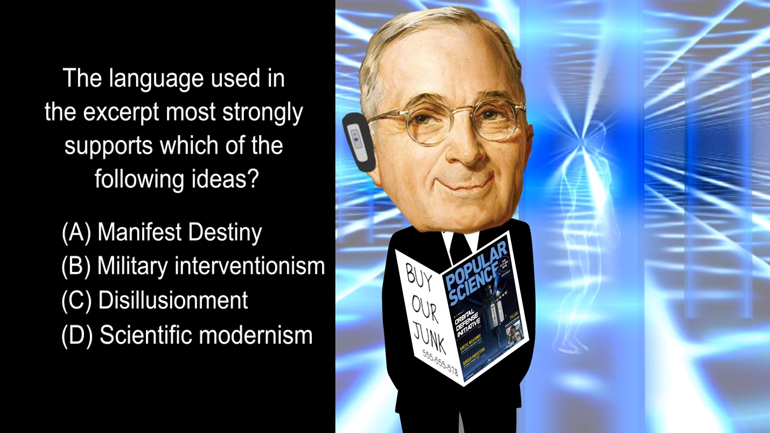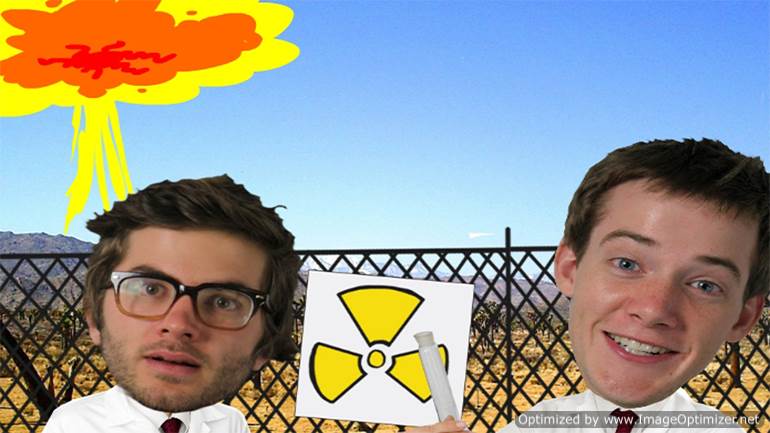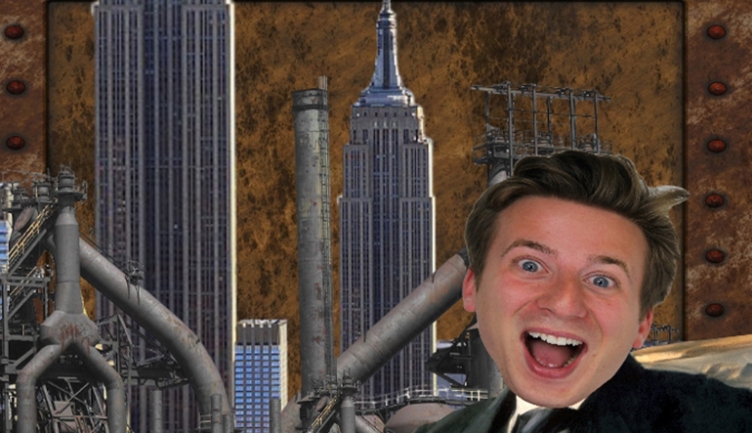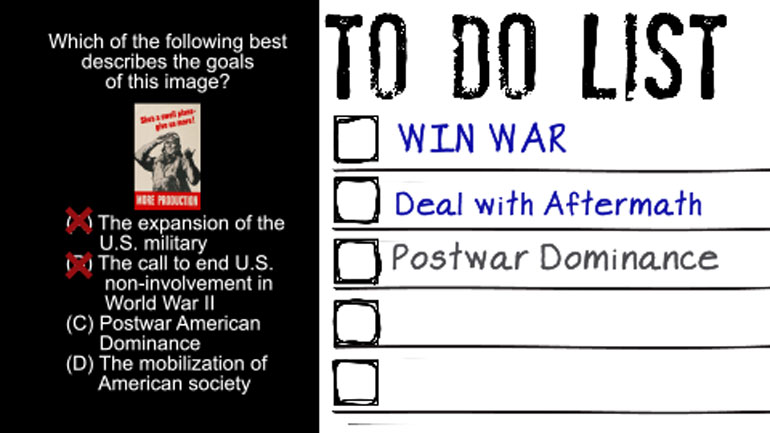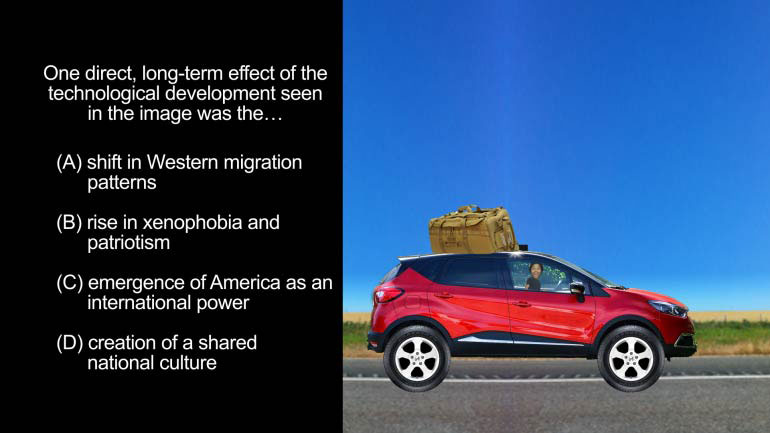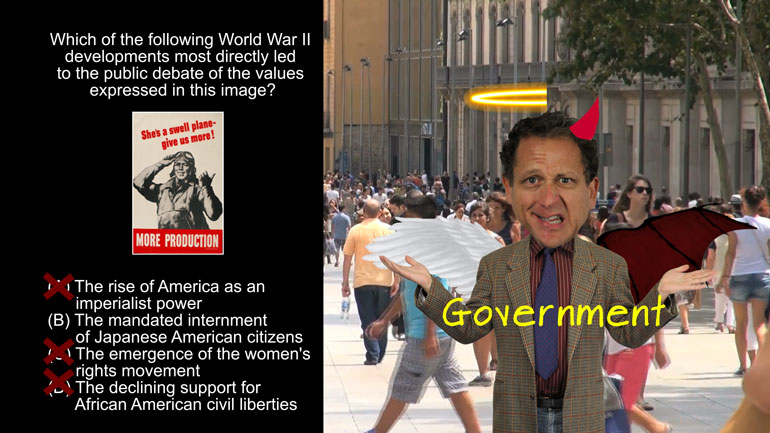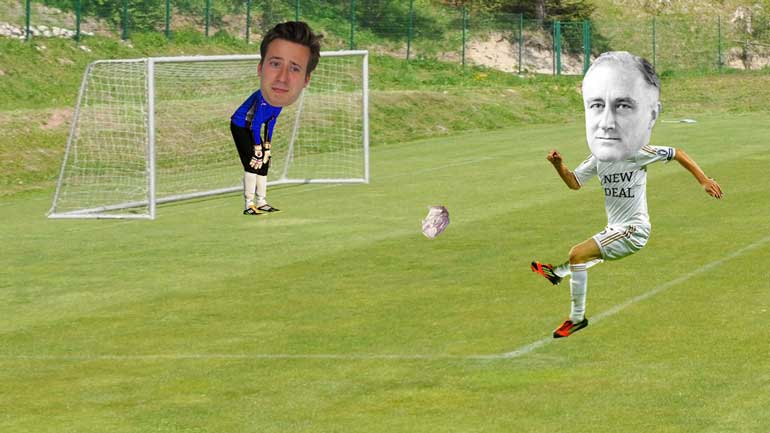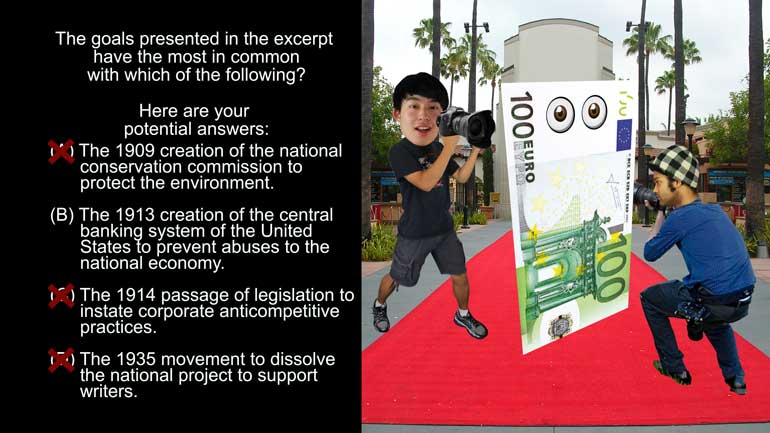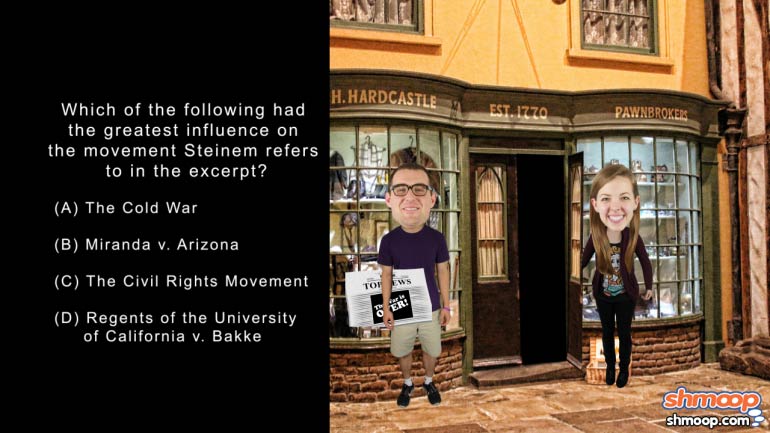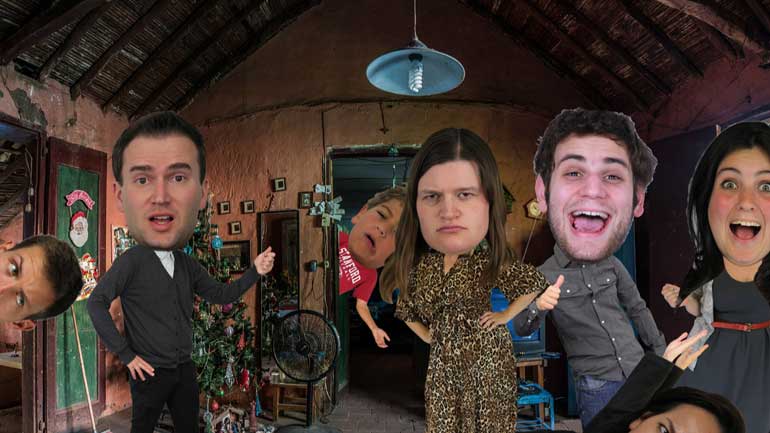ShmoopTube
Where Monty Python meets your 10th grade teacher.
Search Thousands of Shmoop Videos
Period 7: 1890–1945 Videos 19 videos
AP U.S. History 1.3 Period 7: 1890-1945. How did the rise of the corporations affect the social order of the time?
AP U.S. History 2.1 Period 7: 1890-1945. Opponents of Stimson's policies would most likely have supported which of the following?
AP U.S. History 2.2 Period 7: 1890–1945. The sentiment expressed above most radically lost public support after which of the following events?
AP U.S. History 4.1 Period 7: 1890-1945 10 Views
Share It!
Description:
AP U.S. History 4.1 Period 7: 1890-1945. One direct, long-term effect of the technological development seen in the image was the...what?
Transcript
- 00:04
And here's your shmoop du jour brought to you by pop culture because
- 00:07
even a can of soda can benefit from spending a day at the Museum all right [Can of soda looking at painting]
- 00:12
check out this image right there little girl
- 00:14
listening to radio all right well one direct long-term effect of the
- 00:19
technological development seen in the image was what and here your potential
Full Transcript
- 00:24
answers.........we're guessing
- 00:30
that this kid is in a cyborg so probably it has more to do with the Box you sit [Kid sat on the floor inspecting a box]
- 00:36
next to right let's start with a was a shift in western migration patterns one
- 00:41
direct long-term effect of the development of radio probably take some
- 00:45
seriously good storytelling to get people to up and leave their homes that [Young girl listening to radio]
- 00:49
or maybe a whole lot of subliminal advertising either way the radio is not
- 00:54
the most direct way to go about effecting migration patterns
- 00:57
well technological developments may have helped people to get around but they [technological development examples appear]
- 01:00
most likely didn't cause them to get going which means a can't be right so
- 01:05
moving on to be arrives in xenophobia and patriotism is often linked with war
- 01:10
well discovering a friend has ties to the enemy in war times can really change [Girls in locker room]
- 01:14
how that friend is perceived the mentality of with us or against us tend
- 01:19
to rear its head patriotism is how people demonstrate with us while the
- 01:24
possibility of against us really gets that fear of foreigners company well the [Men walk towards each other and turn away]
- 01:30
radio wasn't merely a strange enough or foreign enough invention to strike fear [Man and woman listening to radio]
- 01:35
in the hearts of the American people no one was afraid that the radio was the
- 01:39
alien enemy within simply biding its time and preparing to destroy the United [Alien radio army marching]
- 01:43
States from its place of comfort in American home so he can give me the boot
- 01:47
option C next knowing that the radios weren't out to get them in the 1930s and
- 01:53
40s was surely a weight off everyone's shoulders on the flip side though no one [People walking around with radios on their shoulder]
- 01:57
really gives the radio or similar technology credit for America's
- 02:00
emergence as an international power well weren't they the driving force behind [Car driving down a road]
- 02:05
the shift in how the world viewed the United States Argentina had their own
- 02:09
radio stations and everything but we didn't see them doing
- 02:12
big things in the international sphere in the same way as the US so the whole
- 02:17
radio thing probably wasn't such a big deal on the emerging international power [Radio wielding a light saber]
- 02:21
front right well what about B so you know that awesome moment of realization
- 02:26
when it turns out someone else loved the very same TV show you do or movie score [Girl celebrating]
- 02:31
flavor of Pringles in other words pop culture binds us that's what the radio
- 02:36
did for people back then suddenly everyone could listen to the same music [Children watching cartoons]
- 02:40
they're the same rad radio dramas and get news about what was happening on the
- 02:45
other side of the country all at about the same time sprinkling
- 02:49
some cars for people to travel all over the place and movies and well suddenly [Car travelling down highway]
- 02:52
people had even more to bond over a shared national culture now that's a [Girls eating popcorn]
- 02:57
long-term development so D is the right answer the frequency at which people
- 03:01
listen to the radio is definitely changing non-state radio isn't getting
- 03:05
this fair share of air let's take a look at the interwebs where digital [Smart phone and radio beside each other]
- 03:09
broadcasting is alive and well still getting the beat drop
Related Videos
AP U.S. History Exam 2.48. Which of the following had the greatest influence on the movement Steinem refers to in the excerpt?
The appeal of city living has always been strong. Can you figure out why new immigrants chose to live in big cities? Hint: they weren't trying to b...
AP U.S. History Exam 2.54. Given the excerpt, many critics of the war on terrorism believed that...what?
AP U.S. History Exam 2.43. The problem depicted in the image led to the creation of...what?
Take a look at this sweet question about Equal rights. ...Oh. It's not about the sweetener? Gotcha. Check it out anyway and see if you can find out...


